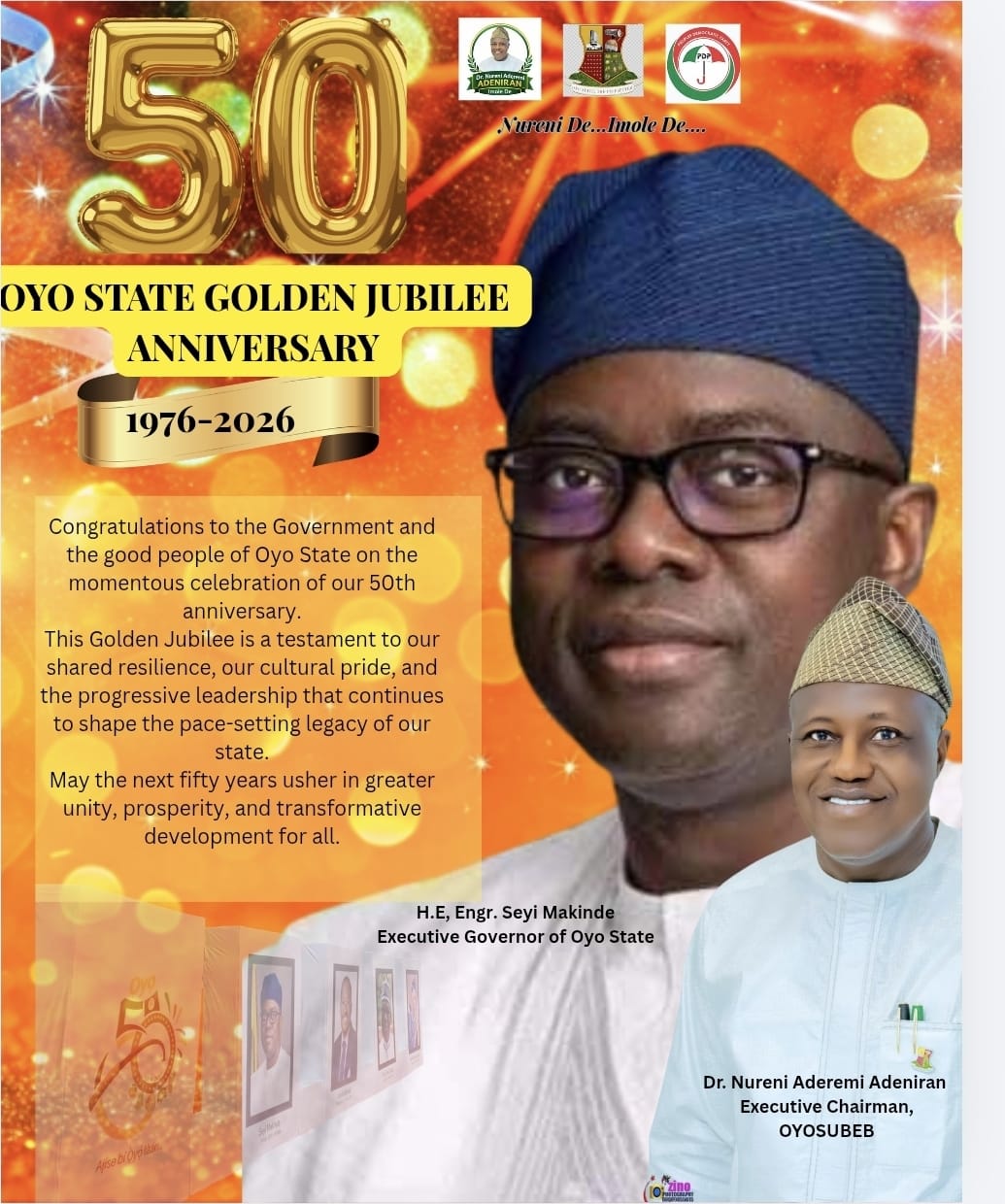In the course of reading books of lamentation on the poor attitude of state officials and indeed Nigerian leaders who have always either taken ill in office or lost some loved ones, I stumbled on another interesting story of a pioneer medical icon whose efforts at establishing the University Teaching Hospital (UCH) Ibadan would have been celebrated if the pioneering advantage of the UCH too had been sustained by successive administrations. I mean here that I have detected a correlation between the neglect of Dr. Samuel Ayodeji Manuwa, one of the brains behind the successful take-off of UCH in 1956 and the neglect of the health sector in Nigeria since 1966 when the wasters called “military governments” imposed a unitary system on this hapless country. I have read a great deal of the exploits of the late SirManuwa, an Ilajeman from ItebuManuwain the old Okitipupa Province in Ondo state now in the riverine area of Ogun state. That is why it is curious why the great man’s name was not listed among top 100 men that were honoured when Nigeria did its centenary celebration in 2014.
No one from Ondo state where he has his roots to Ogun state where his children and grand children now hail from, fought to get him listed. The organisers of the centenary celebration did not dig deep to honour the great man who was markedly instrumental in the efforts to establish the UCH, Ibadan, once listed among the best five teaching hospitals in the old Commonwealth. They always forget him (Manuwa) as they always forget the importance of the simple saying that the health of the people is the wealth of the people. They always forget the role of Dr. Manuwa in the establishment of health-care delivery system by the colonial administration. Just as they always forget to equip the hospitals they commission in the states and federal levels. They always forget to budget for training and retraining of medical experts who can cope with the 21st century medical challenges. Besides, do we always remember too the noble role of another Samuel, Sir Ladoke Akintola in the politics and policy that accelerated the setting up of UCH? Do the young ones know that Sir Akintola was the Minister of Health at that critical moment when substantial amount of money was needed for a critical stage of building of UCH? Akintola too has never been well documented as a critical success factor in this age when we honour most morons as business barons. Can this great negligence be attributed too to the neglect of history as a subject? And so did we know that:
The forgotten quiet operator, Dr. Manuwa(1903-1976), was the 1st surgeon in Nigeria? He rose from humble roots as the son of a clergyman from Ilaje. Born in 1903, after a brilliant scholastic career through the Church Missionary School and Kings College Lagos, he proceeded to the University of Edinburgh Medical School where he qualified as a Doctor in 1926.
At the time, the fashion was to get a basic professional qualification in whatever field you studied and return home. This is the summary of his profile:Samuel Layinka Ayodeji Manuwa,CMG, OBE,(1903–1976) was the pioneer Nigerian surgeon, Inspector General of Medical Services and former Chief Medical Adviser to the Federal Government of Nigeria. He was the first Nigerian to pass the FRCS and he graduated from the University of Edinburgh in 1934. In 1966, he was elected president of the World Federation for Mental Health. During his lifetime he served as a Nigerian aristocrat, holding the chieftaincy titles of the Obadugba of the Ondo clan, the OlowaLuwagboye of the Ijebu clan and the Iyasere of the Itebu Lineage, all of the south-western region of the country.
As Inspector General of Medical Services, he contributed immensely to the establishment of the University College Hospital (UCH), Ibadan, the first medical school in Nigeria. He was in charge of the pioneering Adeoyo Hospital, Ibadan, which was used as apreparatory ground before transferring medical students to London University College Hospital – before UCH was ready in 1957. He later became a pro-chancellor and chairman of the governing council at the University of Ibadan. Throughout his career, he sought and worked for the improvement of basic health services in the rural areas of Nigeria. Sir Manuwa was born to the family of Reverend Benjamin Manuwa. A Grammar School in Iju Odo, Okitipupa, Ondo state, (Manuwa Memorial Grammar School) was named after him.After his secondary education in 1921, he then proceeded to study at the University of Edinburgh where he received a bachelor’s degree in Chemistry and Medicine in 1926. He graduated with a several awards: the Robert Wilson Memorial Prize in Chemistry and the Wellcome Prize in Medicine. He later went to study in Liverpool thereafter and completed a course on Tropical Medicinein 1934.
He returned to Nigeria after finishing his studies on tropical medicine and joined the colonial medical services as a medical officer. He subsequently became a senior surgeonspecialist in the service, where he gained acclaim as a skilled surgeon. Though, he received various offers for administrative positions earlier on, he continued his surgical work for 18 years. While practicing as a surgeon, he reportedly invented an “excision knife”to treat tropical ulcers.
In 1948, he lifted his embargo on administrative positions when he became the deputy director of medical services. In 1951, he was made the first Nigerian director of medical services and subsequently the Inspector General of medical services. He became fully involved with the Nigerian public service in 1954, when he was appointed the Chief Medical Adviser to the federal government of Nigeria. He later went on to become a member of the Privy Council of the Federation of Nigeria, President of the Association of Surgeons and Physicians in West Africa. He was recorded too as the first Nigerian Commissioner of the Federal Public Service Commission.He later humbly served as the Deputy Chief under AlhajiSuleKatagum when Nigeria became Independent, despite being the 1st Nigerian Commissioner on the Commission.
The grandfather of UFC fighter, Jimi Manuwa, reportedly operated on 10’s of 1000’s of people in the span of his 18-year career as a pioneer surgeon. Among other things, in 1952 he reportedly saw to it that the entire African Hospital (General Hospital) floors in Lagos were properly redone in Italian terrazzo just as the colonialists had done in their (European) hospitals (later named Creek Hospital now Military Hospital Onikan). Prior to that, you would be lucky if you didn’t contract hookworms from the floor if you didn’t wear shoes as an inpatient, especially in the patient bathrooms. Besides, he ensured that all resources were made available to fight Tuberculosis, which was, then an African Epidemic neglected by the colonialists. TB was then no respecter of persons or status. At his instance, films were made that then demonstrated how to prevent and identify Tuberculosis in Africans to the extent that cinema goers were shown in all cinema houses in Nigeria before other media presentations. Sir Manuwa’s support and leadership won Nigeria the fight against Tuberculosis in the 50’s and early 60’s. As the leader in the Medical Community of West Africa, he ensured that meritocracy and excellence became the No.1 yardstick for every thing that had to do with the medical practice. There was no doubt then that people held him in very high esteem, so much that Her Royal Highness Queen Elizabeth II honored him with a knighthood in 1956 for his Professional Excellence and Services to West Africa in the Field of Medicine. Among his accomplishments too were the closing down of the old Yaba Medical College before setting up of the Ibadan University College Medical School and The University College Hospital Ibadan.
It should be noted that tragedy began for the health sector and indeed the federal civil service in July 1975, when the country went through a transition as a sudden change of government was effected within the military hierarchy. General Yakubu Gowon was removed and General Murtala Mohammed became Nigeria’s 3rd military head of State. At the time, Sir Manuwa was in his official residence on Alexander Avenue in old Ikoyi, a place he had lived since the 1950’s with wife Lady Bella Manuwa. As the Government announced sweeping reforms in the Federal Civil service, “he was retired with immediate effect”, a development that triggered massive retirement, which swept off many senior civil servants at the time. To worsen the humiliation, Sir Manuwa was ordered to vacate his official residence “with immediate effect”. All pleas not to treat this eminent Nigerian and others fell on deaf ears. For such a distinguished man, it was reported then that the shocking ill treatment was unprecedented and undeserved, but he complied and moved to a place in Surulere where he took ill and died of a heart related problem in 1976. Barely six months after his death, his wife (Bella) too died in a car a crash involving some board members of Cadbury Nigeria Limited who were on a tour of northern Nigeria. What a tragic denouement to service of one’s country!
Therefore, as Sir Manuwa has been named among the great ones who developed UCH to a center of medical excellence it became from inception to the “Golden Era of Nigerian Medicine” in the 60’s and 70’s when members of the Saudi Royal Family came to seek regular specialist care at the University College Hospital, on Queen Elizabeth Road, Ibadan, a special committee should be set up today on how to reboot UCH to its original setting as a global centre of medical excellence. That should be the starting point to revival of all other abandoned medical centresof excellence that corruption of the power elite has destroyed. And so, Nigeria’s leader now receiving treatment in a country that delivered an excellent UCH to us 61 years ago should reflect on this call so that people and their leaders can receive medical treatment at home. That is the best way to honour Sir Manuwa beyond a street named after him in Victoria Island, Lagos.
Culled from – “Inside Stuff Column,” The Guardian























